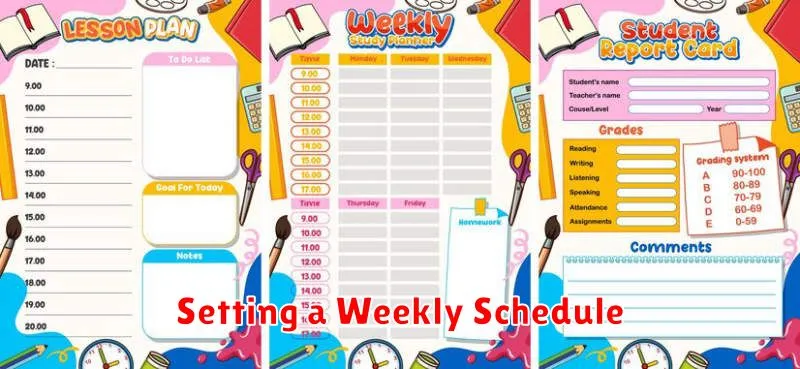Starting your first semester of college is a significant milestone. It marks the beginning of a new chapter filled with exciting opportunities, academic challenges, and personal growth. This comprehensive guide offers invaluable advice and practical tips to help you navigate the transition smoothly and make the most of your first semester experience. Whether you’re feeling anxious about leaving home, unsure about academic expectations, or eager to embrace campus life, understanding how to prepare for college will empower you to confidently embark on this exciting journey. From packing essentials and managing finances to navigating campus resources and building connections, we’ll cover everything you need to know to thrive during your first semester of college.
This guide will address common concerns and questions that many first-semester college students face. We’ll delve into crucial aspects of college preparation, including academic strategies, time management techniques, and effective study habits. Learn how to choose the right courses, connect with professors, and utilize campus resources to excel academically. We’ll also discuss essential life skills such as budgeting, maintaining a healthy lifestyle, and fostering positive relationships. By implementing the strategies and advice provided in this guide, you’ll be well-equipped to conquer the challenges of your first semester of college and build a strong foundation for a successful and fulfilling college career.
Registering for Classes and Orientation
Course registration is a crucial step in preparing for your first semester. Your college will provide details about registration dates and procedures. Often, you’ll meet with an academic advisor to discuss your course selections. They can help you choose classes that align with your degree requirements and interests.
Orientation programs are designed to familiarize you with campus resources, policies, and student life. These programs are highly beneficial for a smooth transition into college life. They usually involve information sessions, campus tours, and opportunities to connect with other students.
Pay close attention to deadlines for both registration and orientation. Missing these deadlines can impact your ability to enroll in desired courses and delay your academic progress.
Getting Your Supplies and Books

Gathering your necessary supplies and books is a crucial step in preparing for your first semester. Start by acquiring a reliable laptop and any required software. Check with your specific departments or professors for any specialized software needs.
Next, create a comprehensive list of textbooks for your enrolled courses. You can usually find this information on the university’s website or student portal. Consider exploring options like renting, buying used books, or purchasing digital versions to save money.
Beyond textbooks, gather essential stationery. This includes notebooks, pens, pencils, highlighters, and folders. A planner or calendar is highly recommended for staying organized. Consider if a physical or digital planner best suits your style.
Finally, organize your backpack. Ensure it’s spacious enough to carry your laptop, books, and supplies comfortably. Consider features such as compartments for organization and water resistance for protection.
Setting a Weekly Schedule

A well-structured weekly schedule is crucial for success in your first semester. It helps you balance academics, social life, and personal well-being. Start by inputting fixed commitments like class times, labs, and work hours.
Next, allocate time for studying. A good rule of thumb is to dedicate 2-3 hours of study time for every hour spent in class. Don’t schedule long, unbroken study blocks. Instead, break them into shorter, more manageable chunks with short breaks in between.
Include time for essential activities like eating, sleeping, and exercise. Prioritize sleep as it directly impacts your ability to focus and learn. Finally, remember to incorporate time for socializing and extracurricular activities. College is about more than just academics. Find activities you enjoy and schedule time for them.
Be flexible. Your initial schedule is a starting point. You may need to adjust it as the semester progresses and you learn more about your workload and commitments.
Learning to Manage Your Budget
Managing your finances is a crucial skill for college success. Creating a budget helps you track your spending and ensures you have enough money for everything you need.
Track Your Expenses: Begin by monitoring where your money goes. Keep records of all your purchases, including small everyday expenses like coffee or snacks. This awareness helps identify areas where you can potentially save.
Create a Budget Plan: Outline your expected income and expenses. Include tuition, housing, textbooks, food, transportation, and entertainment. Be realistic about your spending habits.
Identify Areas for Savings: After tracking your expenses and creating a budget, look for opportunities to cut back. Packing your lunch instead of eating out, using public transportation, or taking advantage of student discounts can make a significant difference.
Building a Support Network Early

Starting college can feel overwhelming. Building a support network early can make the transition smoother and more enjoyable. A strong support system can provide academic, emotional, and social resources throughout your first semester.
Connect with your academic advisor. They can help you navigate course selection, degree requirements, and university resources. Attend orientation and welcome events. These are great opportunities to meet fellow students, faculty, and staff. Don’t be afraid to introduce yourself and initiate conversations.
Join clubs and organizations. Finding groups with shared interests is a fantastic way to build friendships and explore extracurricular activities. Consider joining study groups within your classes. This can facilitate collaborative learning and provide academic support. Reach out to family and friends back home. Maintaining those connections can provide a sense of stability during this time of change.
Remember, building a support network takes time and effort. Be proactive and open to new connections. A strong support system can significantly contribute to a successful and fulfilling first semester of college.
Exploring Campus Resources
Navigating a new campus can be daunting. Familiarizing yourself with available resources is essential for a successful first semester.
Academic Resources: Seek out the tutoring center for subject-specific assistance. The writing center can provide valuable feedback on papers and assignments. Don’t hesitate to utilize professor’s office hours for personalized guidance.
Student Support Services: Explore the counseling center for mental health and wellness support. The career services office can assist with internships and job searches. The student activities office connects students to clubs and organizations.
Library and Technology Resources: Familiarize yourself with the library’s databases and research tools. Explore computer labs and other technological support offered on campus.
Planning for a Balanced Routine
A well-structured routine is crucial for success in your first semester. College life presents a significant shift in responsibility, requiring you to manage your time effectively between academics, social life, and personal well-being.
Begin by creating a weekly schedule. Block out time for classes, study sessions, and extracurricular activities. Be realistic about how much time you need for each task. Factor in breaks and downtime to avoid burnout. A balanced routine incorporates time for sleep, exercise, and socialization.
Prioritize your tasks and learn to say no to commitments that might overextend you. Flexibility is also important. Be prepared to adjust your schedule as needed throughout the semester. Unexpected events and shifting priorities are a normal part of college life.

